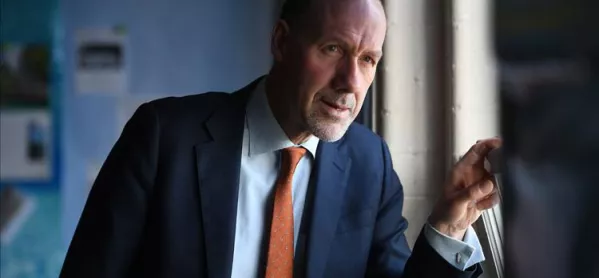- Home
- ‘We must take this opportunity to consign EBacc to history’
‘We must take this opportunity to consign EBacc to history’

Perhaps it’s a sense of intoxicating giddiness that comes with sunny days and the prospect of half-term, but might we be at a turning point over that wretched, inelegantly named thing called EBacc?
Since its inception, there was always something distastefully cynical about a government policy that accepted a broad curriculum for all children to the age of 14, but then deployed the clumsy threat of accountability measures to try to drive school and student choices at key stage 4.
Not only is the policy not working, it’s also now beginning to unravel.
This week, the Russell Group of universities, in what feels like a significant move, announced that they had decided to stop highlighting the so-called “facilitating” A-level subjects to prospective students. Instead, students will be able to see how different combinations of subjects pave the way for degree courses.
Why this matters in terms of EBacc is because the facilitating subjects are the same set of subjects as the EBacc suite. And if top universities are emphasising the importance of subject combinations that best fit the appropriate course rather than a straitjacket of preferred subjects, then the government’s insistence that the EBacc is the default preparation for 90 per cent of students looks like it’s teetering even more than common sense already told us.
Creative arts squeezed
We know that most school leaders would be pleased to see the back of EBacc. Back in 2015, the Association of School and College Leaders conducted a survey in which nearly nine in 10 opposed the then plan for compulsory EBacc (a plan later watered down to the current target of 90 per cent of pupils studying EBacc by 2025). Respondents expressed concern that it did not suit the needs of every pupil, and did not leave enough room for creative and technical subjects. After all, how on earth can we expect students to embrace T levels in their post-16 career if technical education isn’t given appropriate status at KS4?
And so it has proved.
Combined with severe funding pressures, the impact of EBacc has been to squeeze creative arts subjects in particular to the margins of the curriculum. It is not so much EBacc itself that has done this - the entry rate is stuck stubbornly at just under 40 per cent of pupils - but the fact that this set of subjects is embedded in the Progress 8 headline measure on which schools are judged. This elevates the importance of these subjects, while devaluing the importance of all other subjects. If you have to cut a course to save money, it doesn’t take a genius to work out where the axe will fall.
In fact, the government itself might breathe a sigh of relief to get shot of EBacc - other than the zealots, that is (you know who you are). The reason that the take-up rate is stuck at just under 40 per cent of pupils is because of difficulties in delivering the language element in a climate of teacher shortages and concerns about severe grading. The notion that 90 per cent of pupils in England will be studying GCSE language courses by 2025 is pure fantasy.
And the government might also be concerned about the potential economic consequences of a policy that squeezes out subjects that underpin the creative industries, a sector that is worth £100 billion a year to the UK.
‘The policy that time forgot’
This does not mean, by the way, a wholesale abandonment of the laudable aim of giving every child the knowledge that is their inheritance. Nor am I saying that learning a modern foreign language isn’t important. The EBacc subjects are clearly of enormous importance and will continue to be so, but it is surely reasonable to suggest a more flexible approach at KS4 - a phase of education that, in the English system, has been designed around giving more diversity and choice, as children move towards adulthood.
EBacc feels increasingly like the policy that time forgot. With both feet planted firmly in the past, it relies on arcane accountability mechanisms to try to grind every child through an identikit set of subjects, regardless of the alienating, dispiriting impact on many pupils (and probably many of their teachers, too), plus a snooty sense that from KS4, some subjects matter much more than others.
So, the EBacc has had its day. Let’s embrace the optimism hanging in the summer air, seize the moment, and have the courage to consign it to history.
Keep reading for just £1 per month
You've reached your limit of free articles this month. Subscribe for £1 per month for three months and get:
- Unlimited access to all Tes magazine content
- Exclusive subscriber-only stories
- Award-winning email newsletters



